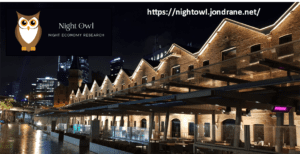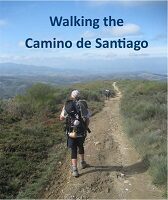Exploring the night economy and how our city authorities should plan, design or develop the frontier of the future, the night economy
Dr Drane was invited to chair the ANZ Night Time Economy Forum to be held in Sydney from June 12th to 14th, 2019.
The forum brings together government, industry and legislators across several Australian cities from Perth to Canberra, Tasmania and Sydney then to regional settings like Townsville and Newcastle and more.
A Night Economy that is more permanent
The forum sought to define how a city can create a night time economy that goes beyond traditional examples of pubs, night clubs, restaurants, theatres and cinema.
The landscape of night time is being divided into evening economy versus night economy separating the concept of dinner related early evening activities to late night entertainment and clubs.
These in themselves have attracted controversy and restrictions due to alcohol/drug related violence and associated restrictions and curfews that remain the subject of intense debate.
Community facilities in the night economy
At the community end of the night time economy lies the safety benefits of people in the city at night from people returning home from work, to those heading out for a night shift. Homeless people benefit from government and benevolent services that extend into the evening from shelters and related services to libraries and government support agencies.
Planning the Night Economy?
At the city planning end of the equation, how do we plan for these changes and indeed is planning the correct method for activation of such precincts and outcomes.
Do we use stimulant zones such as Mixed Zoning or do we instead as City Builders take a more proactive role and design and develop precincts with development bodies. Do we take the examples of Barangaroo, Darling Harbour and Honeysuckle in Newcastle to create catalyst related precincts.
Population Levels in the Inner City
Another consideration is the restraint that our city and town formations bring to us in historical terms. The typical regional town formation for example was designed with small resident populations in the town centre while the population worked and lived in the rural catchment surrounding the town centre.
Even Sydney, one of Australia’s most vibrant cities retains a small resident population in its original peninsular town formation and is no New York or London in this regard. The question arises how do we adapt low resident town formations to a vibrant night economy?
Infrastructure and Access
At the infrastructure end of things, how do we a support a mobile vibrant night population with a safe transport option that does not rely on cars and car parking?
These questions and concepts are the subject of review by experienced speakers who share experience, examples and case studies to help us through the conundrum.
Despite our existing vibrant night life precincts in our major city centres, our cities in general have a long way to go in the conception and realisation of these exciting new offerings. Come along to the ANZ night time economy forum on 12to 14th June in Sydney and find out.


About Us – The City Whisperer
The City Whisperer explores the future of smarter healthy cities. It focuses on mental health and the city and how we can build better cities of the future.
About Us- Smarter healthy cities
Relevant Links:
Link to UNSW Library for Published Doctorate
Research Sites – Jonathan Drane
Jonathan’s Linked In Profile
https://www.linkedin.com/in/jonathan-drane-6761a717/?trk=hp-identity-photo

